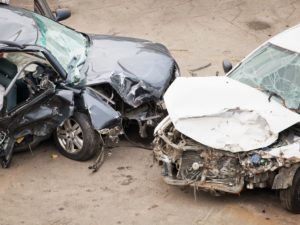Who Pays Your Medical Bills When You’re in a Car Crash?
Posted August 16th, 2018 by Anthony Carbone, PC.
Categories: Auto Accidents.
 Injured in a car crash? All things considered, you’re likely most worried about securing treatment and ensuring that your medical bills are paid. If you have your own automobile insurance policy, you may want to read this article. But, what happens if you are a passenger or driving a car you borrowed?
Injured in a car crash? All things considered, you’re likely most worried about securing treatment and ensuring that your medical bills are paid. If you have your own automobile insurance policy, you may want to read this article. But, what happens if you are a passenger or driving a car you borrowed?
Here’s a little story for illustrative purposes only. Perhaps you and your buddy are returning from a game at the Meadowlands. You commute into the city and don’t feel the need to own a personal vehicle. In fact, you “Uber it” on the rare occasions when public transportation from Jersey City won’t accommodate you.
What happens next is beyond your worst fears. The sound of the loud bang reverberates in your ears. Later, you learn that a mini-van sped through a red light and crashed into your side of the car. The damage was so bad that you could not even open the door. In fact, the fire department had to use the Jaws of Life to remove you from the vehicle.
When you start to receive bills for medical treatment, you are shocked at the amounts. As far as you’re concerned, you’re ready to send the invoices directly to the driver who nearly killed you. Here’s where you’re in for a surprise. The insurance company for that motor vehicle operator will deny payment. And, they will be within their legal rights to do so.
Medical Bill Payment When You Don’t Own a Car
As our scenario continues, you decide to retain the services of an experienced personal injury attorney. It may come as a surprise. Yes, you can bring a liability lawsuit and sue the negligent driver for damages. However, when you don’t have personal automobile insurance coverage – and are injured in a car crash, there are specified rules for paying your medical bills.
First, NJSA 39:6A-4.2 provides the law concerning the primacy of coverage for automobile insurance policies. Personal Injury Protection (PIP) benefits include payment of medical bills. Do you live with a relative who has a personal vehicle and car insurance? Believe it or not, you claim gets submitted to their insurance carrier – even though they weren’t involved in the accident at all!
If you live alone and don’t own a car, you will have to submit your claim elsewhere. You are shocked when you learn that you need to make a claim against your friend’s automobile insurance policy. How does that possibly make sense? He did nothing wrong!
Meanwhile, there’s always the possibility that your buddy let his insurance lapse. No doubt you really feel exasperated. Surely the negligent driver is your last resort for getting your medical bills paid.
The answer is still no. In cases of no insurance, New Jersey has a special fund set up. The New Jersey Property-Liability Insurance Guaranty Association (PLIGA) “provides a safety net designed to mitigate the effects of loss on claimants and policyholders who, through no fault of their own, find themselves without coverage.”
If you think all of this is confusing, you’re not alone. Here’s an additional consideration. What if you were deemed in the course of your employment when the car crash occurred? Even if you own a car, your workers’ compensation carrier would be expected to afford medical benefits.
Contact Us
When you’re injured in an automobile accident, you’ll want to make sure your medical bills are paid. At the Law Offices of Anthony Carbone, we help clients with this aspect of their claim. Additionally, we investigate cases to pursue damages based on negligence. Contact us to set up an appointment!


